10 Health Benefits of Watermelon
Watermelon is a large fruit that is mainly composed of water. This outwardly green and inwardly red fruit is great for your health as watermelon is low in calories and fat, which makes it an ideal snack for those seeking to keep their weight down.
It does not contain cholesterol but has a significant amount of lycopene—a plant compound that is known to have powerful antioxidant properties. Antioxidants like lycopene protect the body from the damaging effects of free radicals. This reduces inflammation and lowers the risks of developing various chronic diseases.
Watermelon also contains some vitamins and minerals, the amino acid citrulline that the body converts to L-arginine, which is another important amino acid, and nitric oxide. Nitric oxide promotes blood flow throughout the body, leading to many other health benefits. Below are 10 health benefits of watermelon.

Health Benefit #1: Improves Hydration
Many people don’t take in as much water as their body needs. This can have negative effects on body functions including digestion. Fortunately, watermelon is not only delicious but is 92 percent water. This means that you can improve your body’s hydration by eating more watermelon. Note also that similar to other fruits, the water in watermelon makes you feel full even when you haven’t eaten a lot of food. The fullness is enhanced by the fiber in watermelon.
Watermelon also replenishes electrolytes, which are lost when you sweat. Proper electrolyte balance is necessary for various functions including energy production and muscle function.
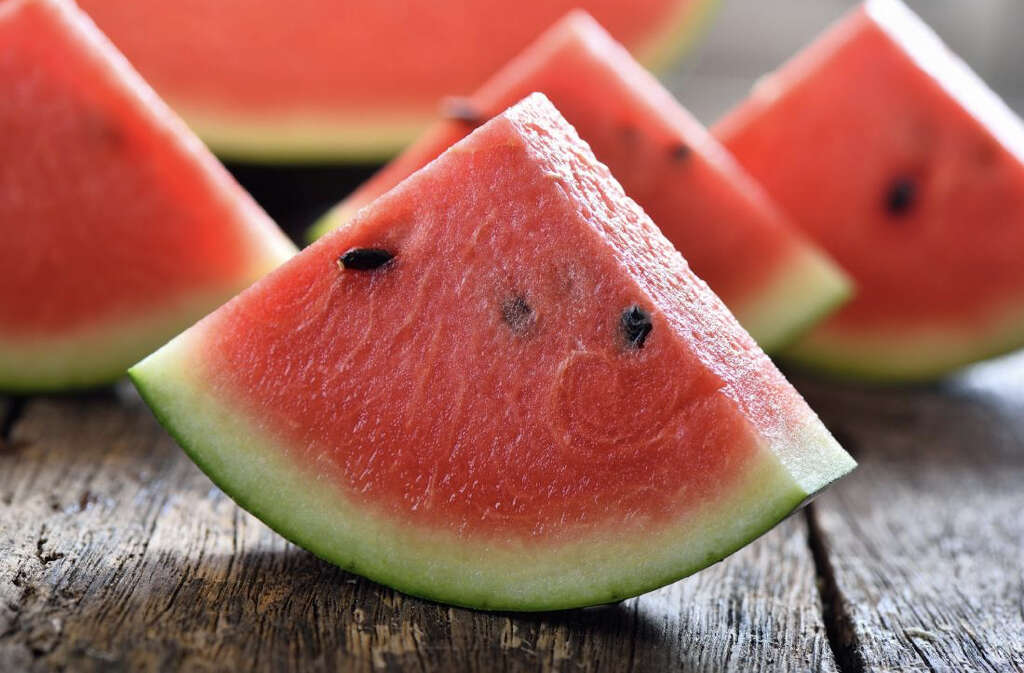
Health Benefit #2: Rich Source of Essential Micronutrients
To most people, watermelon may just be sugar, water, and seeds. But it is a lot more than that. Besides being the fruit with the most lycopene, it contains many other micronutrients including vitamins, minerals, and antioxidants.
Watermelon fruit is very low in calories. However, it is rich in vitamins A, C, B1, B5, and B6, and minerals like magnesium, potassium, copper, zinc, and phosphorous.
Additionally, watermelon contains the amino acid, citrulline—an important amino acid that is transformed into L-arginine in the kidneys. The body uses L-arginine in the production of nitric oxide, a compound that is essential for a healthy heart and healthy blood circulation. Citrulline also helps to boost the immune function in the body.

Health Benefit #3: Reduces Inflammation
Chronic diseases like high blood pressure, diabetes, and arthritis usually develop as a result of excess inflammation. Watermelon is rich in antioxidant and anti-inflammatory compounds like lycopene, which reduce oxidative stress and inflammation.
In a study done in 2015, a group of rats whose diet of unhealthy food was supplemented with powdered watermelon had lower stress and inflammation levels compared to the group that had the same unhealthy food but no watermelon supplementation. Other studies, including some on humans, have yielded similar results. Lycopene also protects the brain from degenerative diseases such as Alzheimer’s disease. To maximize the positive effects of lycopene, choose well-ripened watermelon.
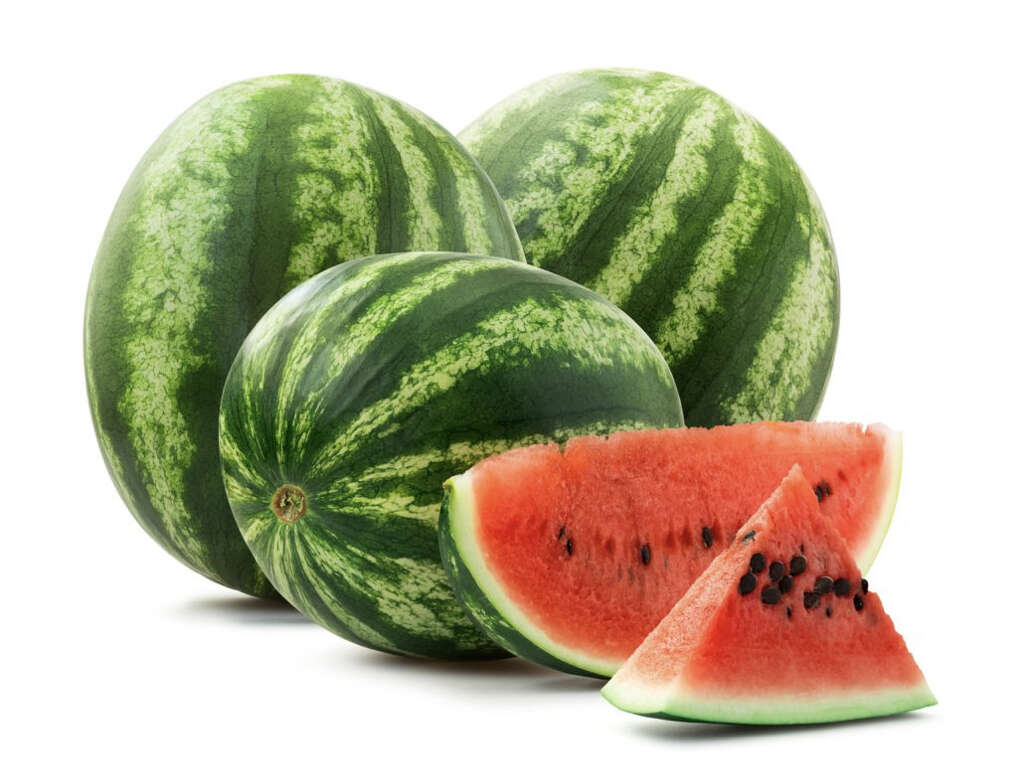
Health Benefit #4: Lowers Blood Pressure
Citrulline increases nitric oxide production. Nitric oxide is a compound that improves blood flow by aiding in the expansion of blood vessels. By helping blood to flow more easily, nitric oxide eases blood pressure. Regular consumption of watermelon lowers your blood pressure and prevents hypertension. It is worth to note that high blood pressure is a catalyst for heart disease.
A study done by Professor Arturo Figueroa of Florida State University concluded that watermelon lowers blood pressure in obese people while under stress or exposed to cold water. Obese people have a high risk of getting a heart attack in cold areas. This is probably because cold water and cold weather may lead to constriction of blood vessels. Therefore, it makes sense for obese people to eat more watermelon especially during the cold seasons.
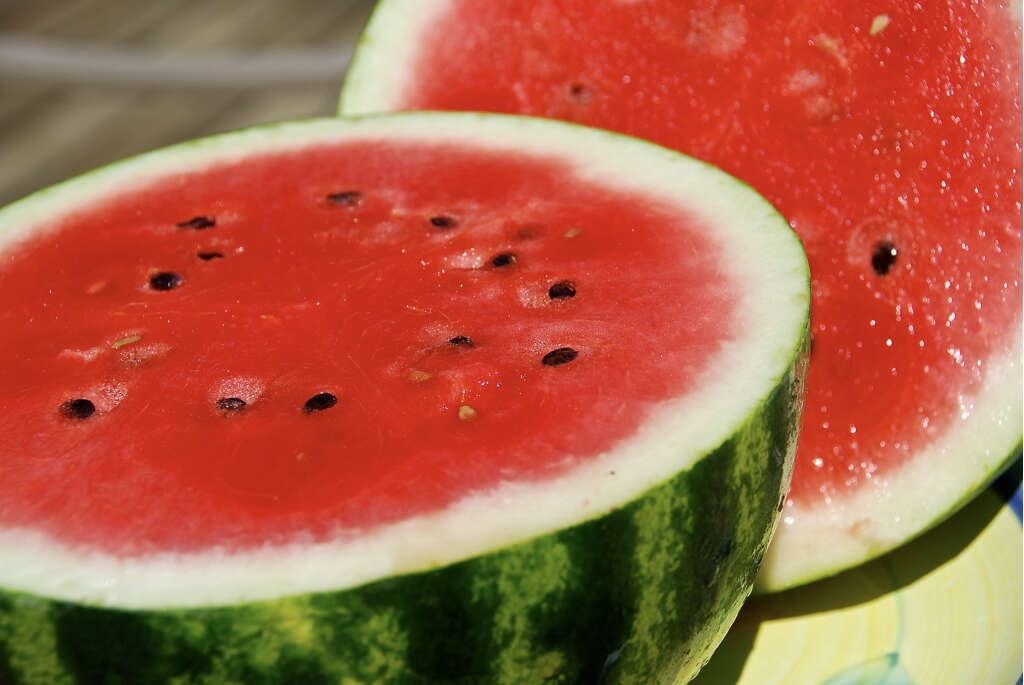
Health Benefit #5: Improves Heart Health
Heart diseases are among the top causes of death in the United States and globally. But eating right could help prevent a heart attack and, in effect, death. Eating fruits such as watermelon regularly and reducing your intake of unhealthy foods can lower your cholesterol levels.
Studies indicate that lycopene, a pigment that gives fruits and vegetables the red color, aids in lowering cholesterol levels. This helps to lower blood pressure, which is especially important in obese people, and thereby reduce the buildup of plaque in blood vessels. Citrulline found in watermelons is converted to the amino acid arginine, which aids production of nitric oxide necessary for healthy blood flow.

Health Benefit #6: Improves Digestion
Watermelon contains a significant amount of fiber and a large amount of water. These two are important in the digestion process. Fiber helps to move food and waste along the digestive system while water is involved in the actual digestion process. The two are also necessary for maintaining a healthy consistence of the waste material so that it can move effectively until exit. Proper consistency of fecal material means that bowel movement is not strained, which would otherwise lead to constipation.
If you regularly suffer from constipation, consider including a regular helping of watermelon. You can eat the fruit or blend it with some mint for a soothing feel.
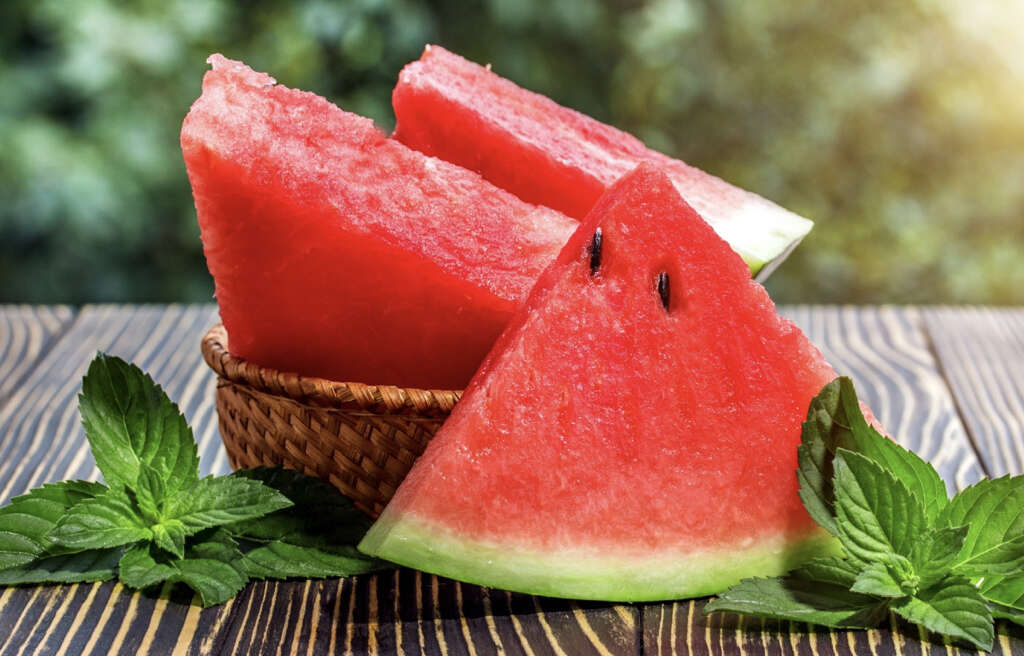
Health Benefit #7: Improves Vision
Besides affecting other parts of the body, free radicals cause gradual loss of vision because they destroy the macular tissues in your eyes. If this continues, it causes reduced vision and may ultimately cause blindness. Including antioxidant-rich food in your diet can help protect your eyes.
The same lycopene that has been associated with many health benefits of watermelon can help improve the health of your eyes. Besides, watermelon is also rich in vision-protecting vitamin A. The antioxidant fights free radicals that lead to macular degeneration. This helps prevent the condition that would otherwise lead to deterioration of eyesight. Increased intake of lycopene-rich foods such as watermelon can also help to stop further damage of the macular tissue in your eyes. This is especially important for the elderly whose sight may already be failing.

Health Benefit #8: Reduces Muscular Soreness
After working out hard or engaging in a hard day’s physical activity, many people wake up complaining of muscle pain and soreness. But you can get around this feeling by eating a generous slice of watermelon or drinking watermelon juice after working out.
The lycopene in watermelon helps prevent or reduce inflammation, which in turn prevents muscular soreness. Additionally, watermelon contains magnesium and potassium, which are necessary for muscle function. Besides, the citrulline in watermelon is absorbed into the muscles, which helps improve blood flow so that waste compounds are removed from muscles. Athletes who know about the health benefits of watermelon as far as their muscles are concerned, drink watermelon juice after exercise to relieve or prevent muscle pain and soreness.

Health Benefit #9: Good for Glowing Skin
The antioxidant lycopene and vitamins C and A in watermelon reduce the damaging effects of free radicals, which slows down ageing. Vitamin A encourages growth of new skin cells to replace old, worn out cells. This way, skin looks young and smooth. On its part, vitamin C aids in the production of collagen, the connective tissue that maintains firm skin, prevents wrinkles, and smooths out fine lines.
Watermelons also protect the skin from extreme weather conditions, thanks to the citrulline in it. If you are suffering from skin rashes, rubbing the affected skin with the inner watermelon rind can give you some relief. Dead skin cells lead to a dull complexion. Watermelons contain citric and malic acids that help in skin exfoliation. For oily skin, exfoliating often is recommended, but for dry skin, exfoliate no more than once a week.
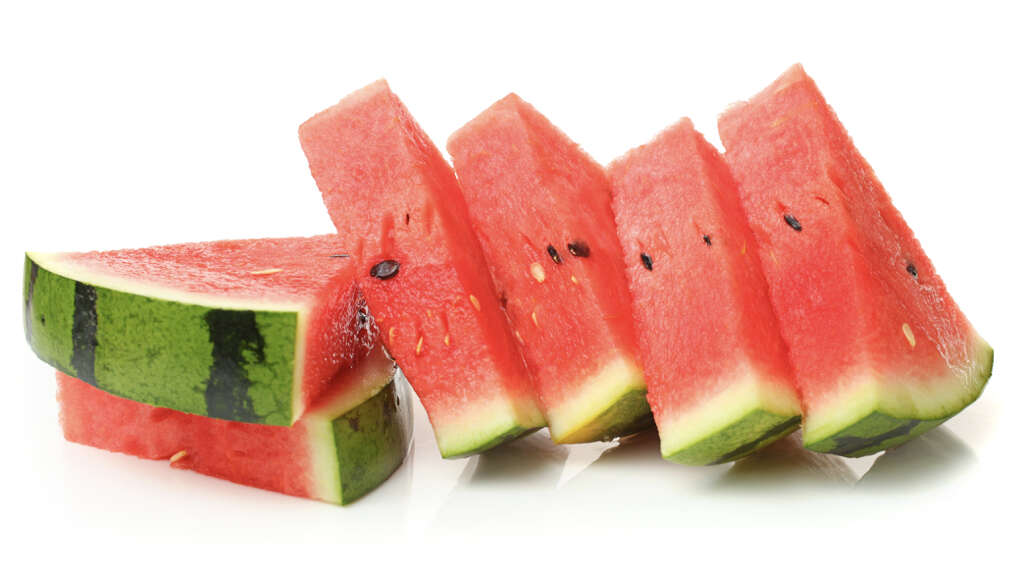
Health Benefit #10: Helps Fight Cancer
There have been a lot of studies conducted on lycopene and other antioxidant compounds found in watermelons to determine their effects on cancer. Many of these studies have suggested that eating watermelon can lower the risk of getting cancer. Lycopene prevents certain cancers from developing. Research on another compound in watermelon called cucurbitacin E indicates that this compound hinders growth of tumors.
In addition, arginine strengthens the p53 gene, the cancer reduction gene. A strong p53 gene destroys cancer even when it has taken root. You can consume the watermelon in its solid fruit form, as watermelon juice, or make a mixed juice with other fruits if you can’t stand it on its own.












